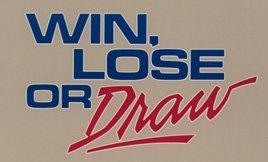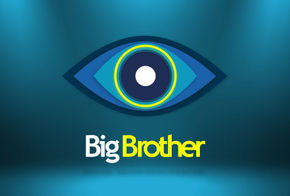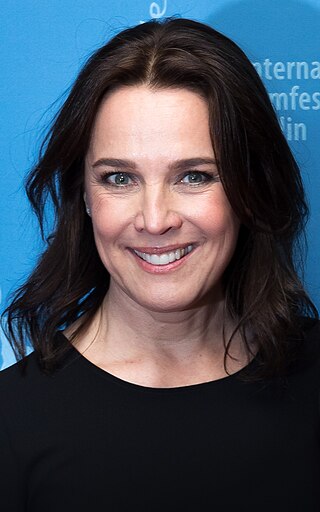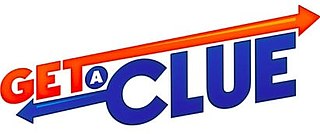Related Research Articles

Lingo is an American television game show with multiple international adaptations. In it, contestants compete to decode five-letter words given the first letter, similarly to Jotto, with each correctly guessed word earning number draws to attempt filling in a Bingo card.

Win, Lose or Draw is an American television game show that aired from 1987 to 1990 in syndication and on NBC. It was taped at CBS Television City, often in Studios 31, 33, and 43 at various times. It was co-produced by Burt & Bert Productions and Kline & Friends for Disney's Buena Vista Television. It has also had two versions on The Disney Channel: Teen Win, Lose or Draw from 1989 to 1992, and a revived version known as Disney's Win, Lose or Draw which aired in 2014. New York described Win, Lose or Draw as "a knockoff" of the board game Pictionary.

Des chiffres et des lettres is a French television programme. It was created by Armand Jammot and tests the numeracy skills and vocabulary of two contestants. It is one of the longest-running game shows in the world, and the inspiration for Countdown on Britain's Channel 4.

Chain Reaction is an American television game show created by Bob Stewart, in which players compete to form chains composed of two-word phrases.

The Cross-Wits is an American syndicated game show which premiered on December 15, 1975, and lasted for five seasons until its cancellation on September 12, 1980. The show was hosted by Jack Clark, with Jerri Fiala as hostess. Announcing duties were handled by John Harlan, Jay Stewart, and Jerry Bishop. The show was produced by Ralph Edwards Productions and distributed by Metromedia Producers Corporation.

Talk About is a game show produced in Canada by CBC Television, which bears some similarities to the board game Outburst. Originally produced by CBC for the 1988–89 season, it was later picked up for American television syndication, airing from September 18, 1989 to March 16, 1990 with repeats later airing on the USA Network from June 28 to December 31, 1993, on GameTV from January 3, 2011 to September 2015, from July 1, 2019 to September 12, 2021, and since February 28, 2022, and on Buzzr starting May 30, 2022. Taped at stage 40 at the CBC Vancouver studios via local station CBUT in Vancouver, British Columbia, the show was hosted by Wayne Cox with local radio personality Dean Hill as announcer, while Doc Harris filled in for Hill during Season 1.

Blackout is an American game show that was broadcast on CBS as part of its daytime schedule from January 4, 1988 until April 1, 1988. The program was created and produced by Jay Wolpert. The game features two contestants, each paired with a celebrity. Contestants attempt to solve word puzzles consisting of a sentence or short paragraph with four blank spaces. Players guess each missing word based on hearing clues recorded by their partner, but with the playback being muted or "blacked out" at certain places by their opponent.
Bruce Forsyth's Hot Streak is an American television game show that aired on ABC from January 6 to April 4, 1986. British television personality Bruce Forsyth hosted the series, the only time he hosted a series outside of his native United Kingdom. Gene Wood and Marc Summers took turns as announcers every week.
Mad Libs is an American children's game show based on the book/word game series. It aired on the Disney Channel from July 26, 1998 to mid-1999, and was hosted by David Sidoni. Dick Clark and J. D. Roth produced the show.

Tele 5 is a German free-to-air television channel that broadcasts classic American films, series, cartoons and Japanese anime.
PDQ and Baffle are American television game shows created by Heatter-Quigley Productions. Both shows' objective was for contestant/celebrity teams to guess a given word or phrase in the shortest amount of time with the fewest letters given as possible.

Big Brother is the German version of the international reality television franchise Big Brother created by producer John de Mol in 1997. Following the premise of other versions of the format, the show followed a number of contestants, known as housemates, who are isolated from the outside world for an extended period of time in a custom-built house. Each week, one of the housemates is evicted by a public vote, with the last housemate remaining winning a cash prize.
La Guerre des clans is a Canadian French language television game show based on the American series Family Feud and was hosted by Luc Senay. It was taped at TQS in Montreal and ran from 1992 to 1997.
Family Game Night is an American television game show based on Hasbro's family of board games and EA's video game franchise of the same name. The show was hosted by Todd Newton. Burton Richardson was the announcer for the first two seasons; he was replaced by Stacey J. Aswad in the third season, and Andrew Kishino was hired for the fourth season. The 60-minute program debuted on October 10, 2010, on The Hub which was Discovery Kids. The network became Discovery Family on October 13, 2014; it was previewed on October 9, 2010, on its sister channel, TLC. Seasons 1 and 2 contained 26 and 30 episodes respectively. Seasons 3, 4 and 5 each contained 15 episodes. Season 2 premiered on Friday, September 2, 2011, with additional games being added. The games added to the second season included Cranium Brain Breaks, Green Scream, Ratuki Go-Round, Simon Flash, Operation Sam Dunk, Trouble Pop Quiz, and Spelling Bee. However games from the previous season were still kept.

Désirée Nosbusch a.k.a. Désirée Becker is a Luxembourger actress and television presenter. She was born in Esch-sur-Alzette, Luxembourg to a Luxembourgish father and Italian mother.
Katakan Katamu is the Indonesian format of television game show Bruce Forsyth's Hot Streak. In this quiz, 4 teams, 5 persons for each team, will examined the knowledge of the vocabulary and played in single-elimination tournament mode. Katakan Katamu is aired on ANTV from 4 October 2010 to 17 June 2011, hosted by Ben Kasyafani. Previously aired on TPI in 5 years renamed Komunikata (2000-2005).

Scrabble Showdown is an American game show created for the American cable network The Hub. The program was based on the board game Scrabble and was hosted by Justin Willman. It ran from September 3, 2011, to April 15, 2012.
25 Words or Less is an American television game show based on the board game of the same name. Hosted by Meredith Vieira, this show is produced by Dino Bones Productions, Is or Isn't Entertainment, Regular Brand, and distributed by Fox First Run. It first aired in summer 2018 as a three-week summer trial run on nine Fox Television Stations and premiered as a regular series on September 16, 2019.

Get a Clue is an American television game show hosted by Rob Belushi that aired on Game Show Network from January 6, 2020, to April 16, 2021.

Tug of Words is an American television game show that premiered on Game Show Network on November 8, 2021.
References
- Official site of Ruck Zuck on tm3 (via Internet Archive)
- original 1988–2000 version
- original website
- Ruck Zuck, Xanfan Supershow 8000, Retrieved on May 30, 2008
- original website
- revived 2004–2005 version